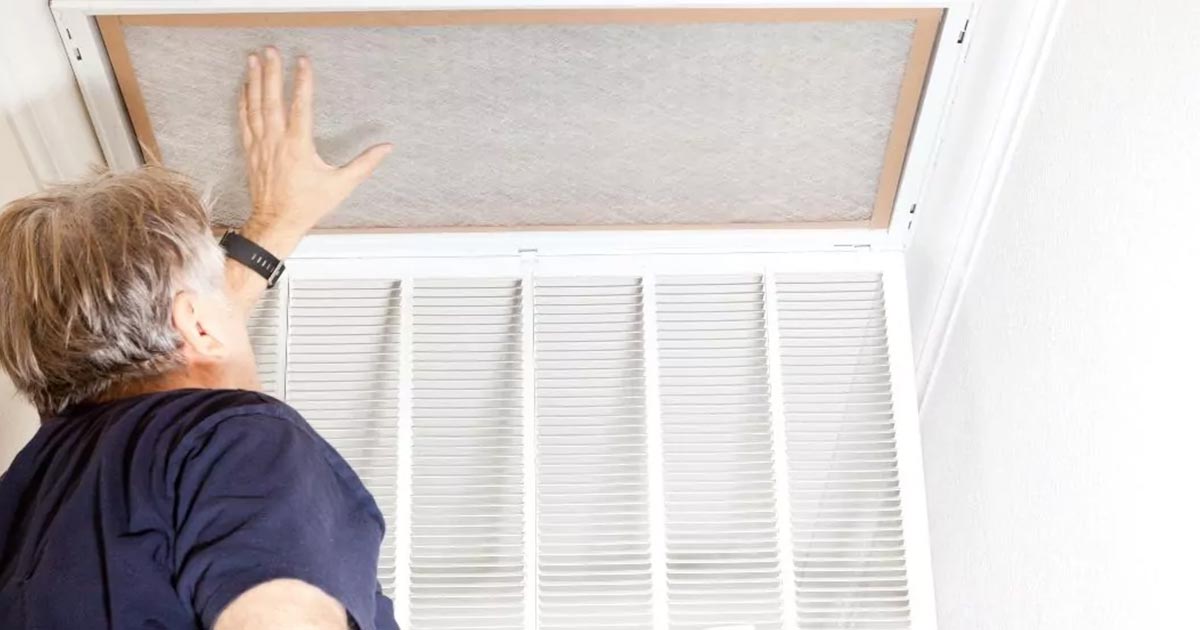As a homeowner or business owner, you may have asked, why is my HVAC filter black? It’s a common question that raises concerns about the health and efficiency of your HVAC system. Understanding the reasons behind a blackened filter can help you address potential issues promptly.

Introduction to HVAC Filters
Your HVAC filter plays a crucial role in maintaining your indoor air quality. It captures dust, pollen, pet dander, and other airborne particles, preventing them from circulating through your home or business premises. Regular replacement of the filter is essential to ensure optimal performance of your HVAC system.
Common Causes of Black HVAC Filters
1. Soot and Smoke
One of the primary reasons for a black HVAC filter is the presence of soot and smoke. This can be due to cigarette smoking indoors or the use of fireplaces and wood-burning stoves. The soot particles get trapped in the filter, leading to its black appearance.
2. Mold and Mildew
Mold spores and mildew are another common cause of blackened HVAC filters. If there’s excess humidity in your home or if your HVAC system is not efficiently removing moisture, mold growth can occur, leading to a blackened filter.
3. Poor Indoor Air Quality
Poor indoor air quality can result from various factors, including inadequate ventilation, use of certain household products, or even the presence of pests. These factors can contribute to a buildup of contaminants in your HVAC filter, causing it to turn black.
Impact of a Black HVAC Filter
Reduced Efficiency
A blackened filter is often clogged with particles, reducing the efficiency of your HVAC system. This can lead to increased energy consumption and higher utility bills.
Health Risks
Dirty filters can negatively impact your health by circulating contaminants and allergens throughout your indoor space. This can trigger respiratory issues, allergies, and other health problems.
How to Prevent a Black HVAC Filter
Regular Maintenance
Regular maintenance of your HVAC system, including frequent filter changes, is essential to prevent the buildup of contaminants. Aim to replace your filters every 1-3 months, depending on usage and the type of filter you have.
Improve Ventilation
Ensuring proper ventilation in your home or business can help reduce the concentration of airborne particles and moisture, minimizing the risk of mold growth and other contaminants.
Air Purifiers
Using air purifiers can further enhance your indoor air quality by capturing finer particles that your HVAC filter might miss. This can help extend the lifespan of your filter and keep it cleaner for longer.
Conclusion
Understanding the causes of a black HVAC filter and taking preventive measures can help maintain the efficiency o f your HVAC system and ensure the health and comfort of your indoor environment. Regular maintenance, improved ventilation, and the use of air purifiers are key steps in achieving this goal.
f your HVAC system and ensure the health and comfort of your indoor environment. Regular maintenance, improved ventilation, and the use of air purifiers are key steps in achieving this goal.
FAQ
What should I do if my HVAC filter is black?
Replace the filter immediately and investigate potential sources of contamination, such as soot, mold, or poor indoor air quality.
Can a black HVAC filter affect my health?
Yes, a dirty filter can circulate contaminants and allergens, potentially causing respiratory issues and allergies.
How often should I change my HVAC filter?
It’s recommended to change your HVAC filter every 1-3 months, depending on usage and the type of filter. Regular changes help maintain optimal air quality and system efficiency.
External and Internal Resources
For more information on maintaining your HVAC system, visit these helpful links: